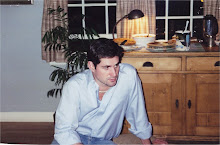
In the 20th century, more than in any other period in its history, art has been a mirror of science. A scientific counterrevolution exploded certainties inherited from the 17th and 18th centuries. Albert Einstein's special theory of relativity directly questioned our long standing belief in the certainty and reliability of Time as a constant in the universe, something by which we could measure ourselves and our progress as a species. Henry Bergson proposed the idea of time being completely subjective, or something that is not a series of successive moments but a construct that arises in our own mind and which we project onto events. Charles Darwin's theory of evolution reaches mainstream thinking and gains credibility among scholars and laymen. The increasing discovery of dinosaur fossils fuels the public imagination of a lost past in earth's history, one that was not mentioned in ancient scriptures and historical texts. The discovery of radium and radioactive decay leads to very accurate methods of dating organic material, leading to the accurate discovery of the age of the earth being 4.5 billion years old. Niels Bohr and others explore the world of quantum physics and reveal a world of uncertainty and chaos as it is revealed sub-atomic particles, the building blocks of the universe, behave in inexplicable and chaotic ways. New and increasingly more powerful telescopes allow us to view deeper into the universe, leading scientists to learn more about our infinitesimal position in an infinite and, as Edwin Hubble discovered, an expanding universe. The age of the universe is calculated to be 15 billion years old. Our notion of the earth as existing for 6,000 years is shattered, and people begin to realize the earth has had a very long past, one that excludes humanity and minimizes our significance in the universe. We realize our brief history on the planet is insignificant and we, like many other species before us, are a small link in an infinite chain of events, and we, too, will be a mere historical reference of a long-forgotten past. New ideas had subverted or exploded the certainties of the past, and the universe seems chaotic and bewildering. And, oh yeah, we cannot forget about the unspeakable horrors and destruction of World War I and II.

No comments:
Post a Comment